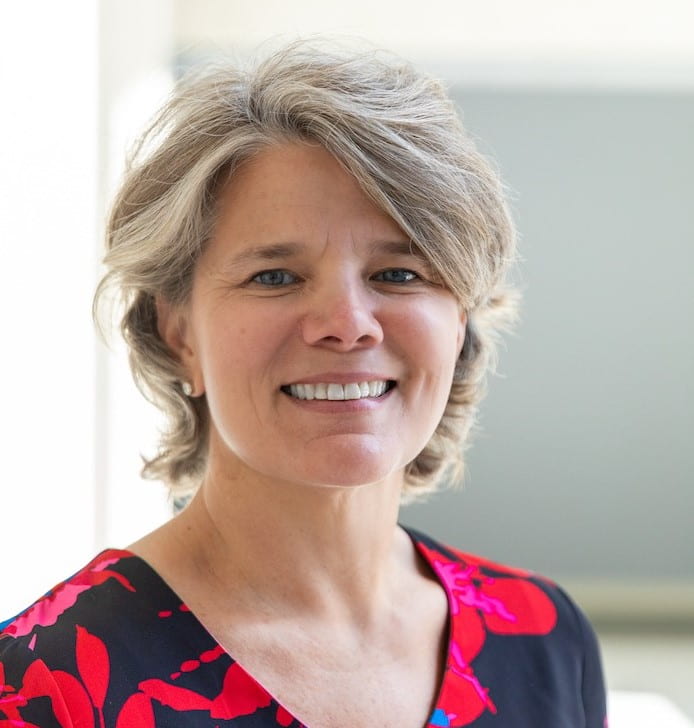News
For the Record
DSI Resident Faculty member Pinki Mondal, associate professor in the Department of Geography and Spatial Sciences, has been selected to serve as a lead author for the Intergovernmental Platform on Biodiversity and Ecosystem Services (IPBES) “Multi-Year Assessment on Monitoring Biodiversity & Nature’s Contributions to People.”
For the Record
First-of-its-kind research by DSI Affiliated Faculty member Tarang Parekh, assistant professor of epidemiology, was recently published in the American Journal of Epidemiology. Parekh’s study reviewed the State Innovation Models (SIM), a payment system introduced by the Centers for Medicare and Medicaid Services in 2013, which provides financial incentives to states to develop innovative payment models to improve healthcare systems.
Spurring Biotechnology Innovation
DSI Affiliated Faculty member Professor Mark Blenner in UD’s Department of Chemical and Biomolecular Engineering is leading the team working to create the NSF Center for Robust, Equitable and Accessible Technology (CREATE) for Next-Generation BioFoundries. It will help accelerate biotechnology research and workforce training in the Northeast and Mid-Atlantic regions.
New Directors for UD’s Growing Fintech Endeavors
DSI Affiliated Faculty member Nektarios Tsoutsos (left) of the University of Delaware’s College of Engineering and Gang Wang of the Alfred Lerner College of Business and Economics have been named new co-directors of UD’s endeavors in financial technology.
State Department Program Brings Foreign Policy Scholars to UD
In early July, DSI Affiliated Faculty member Tarang Parekh, a UD assistant professor of epidemiology, gave a presentation on U.S. public health strategies around social determinants of health to some of the world’s most promising mid-career foreign policy scholars who were visiting the University of Delaware as part of the Study of the U.S. Institute on Foreign Policymaking (SUSI), sponsored by the U.S. State Department.
Equity and AI
In a recent study published in Learning and Instruction, DSI Affiliated Faculty member Joshua Wilson and his co-authors turn their attention to elementary English learners (EL), investigating how this growing population of students interacts with and benefits from automated writing evaluation (AWE) software. They found that AWE technologies are equally beneficial for ELs as they are for non-ELs.
STEM Sisters
For two weeks this summer, the STEMSisters, 27 Pakistani collegiate women, experienced UD’s campus as Blue Hens. The goal of the STEMSisters program, which is co-directed by DSI Faculty Council member Saleem Ali, Blue and Gold Distinguished professor of energy and environment, is to encourage the women’s educational and career goals in STEM fields while learning about climate change and sustainability. The three-week institute was co-hosted by UD and the American Institute of Pakistan Studies (AIPS). It was supported by the U.S. Embassy in Islamabad.
For the Record
DSI Faculty Council member Thomas M. Powers, associate professor of philosophy, presented “Deontological Ethics in Artificial Intelligence” at the 2024 Conference of the International Association of Computing and Philosophy, held at the University of Oregon, Eugene, from July 8-10.
SWUFE-UD Institute of Data Science Honors First Graduating Class
On June 19, 166 students at the Southwestern University of Finance and Economics in Chengdu, China, proudly became University of Delaware alumni during the inaugural 2024 SWUFE-UD Institute of Data Science graduation ceremony.
DSI Faculty Council member Bintong Chen, professor of operations management and director of the Institute for Financial Services Analytics and DSI Affiliated Faculty member Harry Wang, professor of management information systems (MIS) were in attendance.
For the Record
DSI Faculty Council member Jennifer Horney, professor and founding director of the epidemiology program in the College of Health Sciences, recently published research in the journal Scientometrics. The open-access article, “Gender and the h-index in Epidemiology,” is the first-of-its-kind examination of gender and professional age bias in citation indices among epidemiology faculty.










